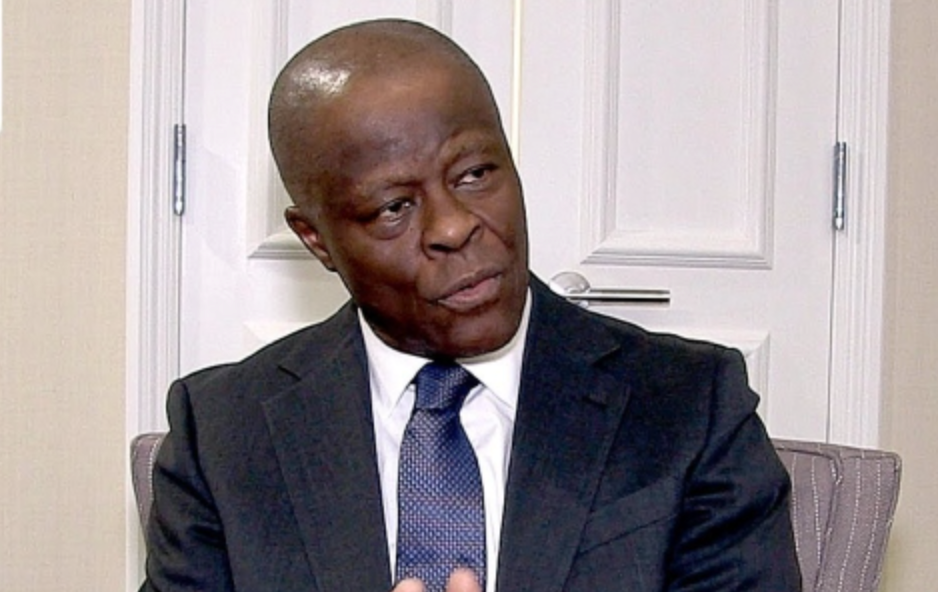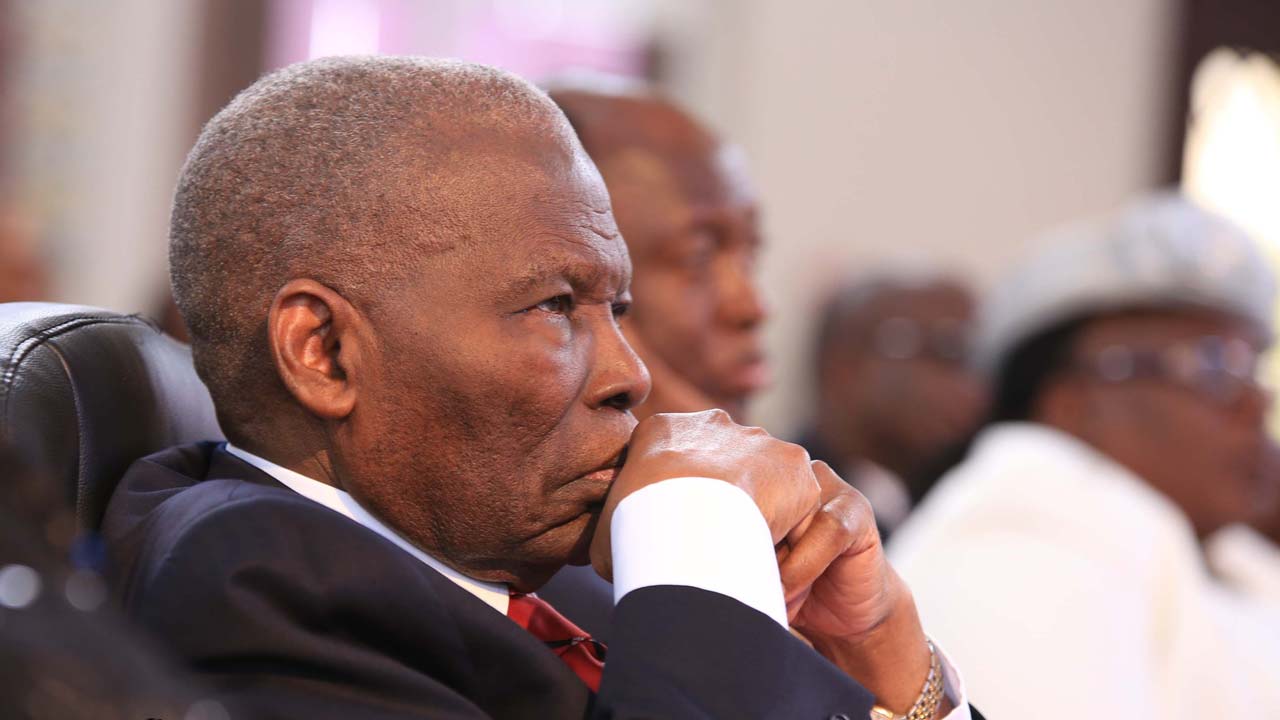As the country grapples with the necessity of state police to complement and relieve federal police of its heavy burden, the 36 governors can do a lot more than they currently do to make life livable and meaningful for millions of their citizens. It is disappointing that most governors have been unable to justify huge financial allocations coming their way from the central purse. While the constitution stipulates that the security and welfare of the people shall be the primary purpose of government, many governors have downplayed that responsibility, preferring to pass the buck to the federal government. It is about time governors assume greater charge of the affairs of their states, particularly security.
Nothing paints a more disturbing picture of insensitivity and fiscal irresponsibility than state governors prioritising multi-billion-naira makeovers of state houses or sundry cosmetic initiatives, while basic services such as protecting human lives and property, providing pipe-borne water, delivering primary healthcare services, and ensuring education are either non-existent, non-functional, or in a dire state within their domains.
For far too long, state governors have been playing possum when it comes to securing their states and maintaining law and order, even when they set aside hundreds of billions of naira as security votes monthly. Their complaints are that state police commissioners do not take orders from them, but the inspector general of police is now jaded; hence, the imperative of out-of-the-box thinking to make the country safe.
The glaring lack of security at the grassroots has been rampant recently, with frequent attacks on communities, especially in Benue and Plateau states, where dozens of hapless Nigerians, including women and children, were mercilessly cut down while their governors wrung their hands helplessly. In recent times, no week passes by without the nation updating the grim statistics of innocent citizens cut down in their prime by bandits, insurgents, kidnappers, armed robbers, and sundry outlaws in city centres, local councils, and ungoverned spaces in far-flung parts of the country. State governors need a lot of tact and quick thinking if they are to be useful in the fight to stop men of the underworld in their tracks, and to make the country safe once again.
The notable successes recorded by the Western Nigeria Security Network (WNSN), codenamed Operation Amotekun in Ogun, Oyo, Ondo, and so on, are strong indications that a lot can be achieved in the area of grassroots security if state governors put on their thinking caps.
Even though the efforts of South-West governors regarding the security of their zone are well noted, those of their counterparts in the South-East, as exemplified by the Ebubeagu, have yet to yield fruit due to dire funding challenges and command structure. Shege-Ka-Fasa, a security outfit established by northern governors, was practically dead on arrival.
Be that as it may, a further confirmation that state governors are not doing enough when it comes to securing their states finds expression in the call on President Bola Tinubu, by the Northern Elders Forum (NEF), to declare a state of emergency in northern Nigeria over the persistent insecurity challenges. The 19 northern governors under the auspices of the Northern States Governors’ Forum (NSGF) also recently demanded an immediate review of the country’s security strategies and the creation of state police to tackle insecurity in the North-East, North-West and North-Central, as well as the general insecurity across the country.
After a recent meeting with the Northern Traditional Rulers Council (NTRC) at the Government House, Kaduna, the governors called on the National Assembly to expedite action on the enactment of the legal framework for the take-off of the state police. In their communiqué, which was read by the Chairman of NSGF and Governor of Gombe State, Muhammadu Yahaya, the governors acknowledged recent setbacks in efforts to combat insecurity and other social vices. State governors’ apparent carelessness has seen misery, bedlam, poverty, and bloodletting, among others, proliferate across the states, while the soaring cost of food has led to empty stomachs and rising tempers.
Yet, states cannot complain of a cash crunch, given the huge amounts being allocated to them monthly from the federation account. The Federation Account Allocation Committee (FAAC) disbursed a total sum of N1.65 trillion as revenue generated in May 2025 to the Federal Government, state, and local government councils.
The disbursement followed the FAAC meeting held in Abuja for the month of June 2025. A communiqué issued at the end of the meeting indicated that the total distributable revenue comprised N863.89 billion from statutory sources, N691.71 billion from Value Added Tax (VAT), N27.66 billion from the Electronic Money Transfer Levy (EMTL), and N76.61 billion from Exchange Difference.
Out of the N1.65 trillion shared, the Federal Government received N538.00 billion, states received N577.84 billion, and local government councils got N419.96 billion. Additionally, N124.07 billion, representing 13 per cent of mineral revenue, was distributed to oil-producing states as derivation revenue.
Providing further breakdowns, the communiqué noted that from the statutory revenue of N863.89 billion, the Federal Government received N393.51 billion, states received N199.59 billion, and local governments received N153.88 billion. Another N116.89 billion from this amount was shared with oil-producing states as derivation revenue.
Meanwhile, state governors appear fixated on projects that add little or nothing to the well-being of the people that they govern, including the extravagant construction and renovation of their offices, often at the expense of critical sectors. For instance, while the Oyo State Government recently approved N63.5 billion for the reconstruction of its government house, drawing strong criticism from political groups and civil society organisations, Gombe and Bauchi states spent N43.1 billion and N16.1 billion, respectively, in 2023 on similar endeavours. Merged with expenses on renovations by other states, the figure may have hit N200 billion in the last three years, including the proposal for new renovations. This huge spending neither promotes the security of lives and property nor leads to the attainment of food security.
The recent launch by the federal government of a coordinated effort with state governors to dismantle barriers in the food supply chain and strengthen local security systems is commendable. The federal government also struck a deal with Galaxy Backbone (GBB) and the Nigeria Police Trust Fund to kick off “smart police stations” nationwide. According to the Managing Director of GBB, Prof. Ibrahim Adeyanju, the partnership would bring about digital transformation and improvement in security. With innovations like this, state governors must also review and renew their security strategies to integrate secure digital platforms into policing.
The country’s experience of tackling insecurity through a centrally commanded police force with its nebulous architecture, poorly trained and remunerated operatives, has shown that little can be achieved under the present security architecture. Many security operatives have made bribery a culture, and they can do little to curb insecurity across a vast nation. It is time, therefore, for state executives to prioritise the push for the establishment of state police. They must be ready to pull out all the stops and ensure that state police see the light of day.






